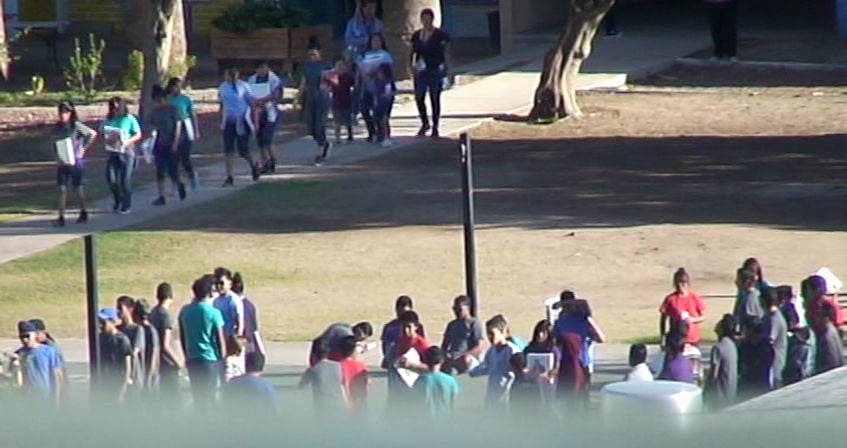Southwest Key may not accept new immigrant minors in any of its Arizona shelters until the state tells it otherwise.
As part of an agreement with the Arizona Department of Health Services, the Texas-based nonprofit will pay a fine of $73,000 and surrender licenses for two of its 13 facilities in the state, Youngstown and Casa Phoenix.
“We will fully and completely comply with this agreement,” Jeff Eller, a Southwest Key spokesman, said in a written statement. “We are committed to making the improvements that are spelled out, and we look forward to building on these changes for the future. DHS’s priority of keeping all children in our care safe is one we not only share but embrace.”
It is unclear what will happen with minors who cross the border or present themselves at ports of entry in Arizona. Last month, the Border Patrol in Tucson and Yuma apprehended 770 minors. Another 134 presented themselves at ports of entry to seek refuge. The vast majority are teens from Guatemala.
Southwest Key’s Tucson Estrella del Norte shelter was until recently operating at capacity, which is about 300 minors.
As part of the agreement, the state health department was able to settle licensing violations and add requirements to improve monitoring of conditions at Southwest Key facilities, the department said in a news release.
Among other things, Southwest Key will also:
- Employ a third-party health-care consultant to evaluate quality management and ensure health and safety concerns are promptly addressed;
- Provide an on-site monitor at each Arizona facility;
- Submit to continued unannounced, on-site inspections by ADHS of all Arizona facilities.
“This agreement, coupled with continued cooperation from our federal partners, will build a solid framework that provides a safe and therapeutic environment for children under Southwest Key’s care,” said ADHS spokeswoman Melissa Blasius-Nuanez. “The department will continue to monitor Southwest Key’s facilities, and we will continue our mission to protect vulnerable children.”
The suspension to accept additional children at all other Arizona sites will remain in place until Southwest Key's facilities "are no longer in substantial violation of the requirements of licensure of a residential behavioral health facility and the (ADHS) director is assured that the health and safety of the residents is no longer in immediate danger," according to the agreement.
The state had moved to revoke the licenses of Southwest Key’s shelters last month after the nonprofit failed to prove it was complying with required background checks of employees.
“Southwest Key’s lack of ability to deliver a simple report on the critical protections these children have against dangerous felons demonstrate an utter disregard for Arizona law,” ADHS director Cara Christ said then in a letter sent to Southwest Key CEO Juan Sanchez.
After receiving the letter, Southwest Key requested an informal settlement conference in lieu of a hearing, which was held on Oct. 9.
The health department investigated all Southwest Key facilities in the state after several media reports of abuse, including sexual abuse.
While the health department wasn’t able to substantiate complaints regarding overcapacity, staff qualifications, failure to report to law enforcement and the safety and care of children, the letter said the health department found problems with employee background checks. This was particularly a problem in Tucson, where inspectors determined eight employees were late to apply for fingerprint clearance cards.
With about 2,000 employees in Arizona, Southwest Key houses unaccompanied minors who cross the border alone while a sponsor, usually a parent or relative already in the United States, is contacted to take custody of the teen.
The number of minors in the custody of the Office of Refugee Resettlement, the federal agency in charge of them, has jumped to more than 13,000 — a record. Sponsors are hesitating to come forward if they are not in the country legally, because of the prospect of their information being shared with Immigration Customs Enforcement and ultimately leading to their deportations.





